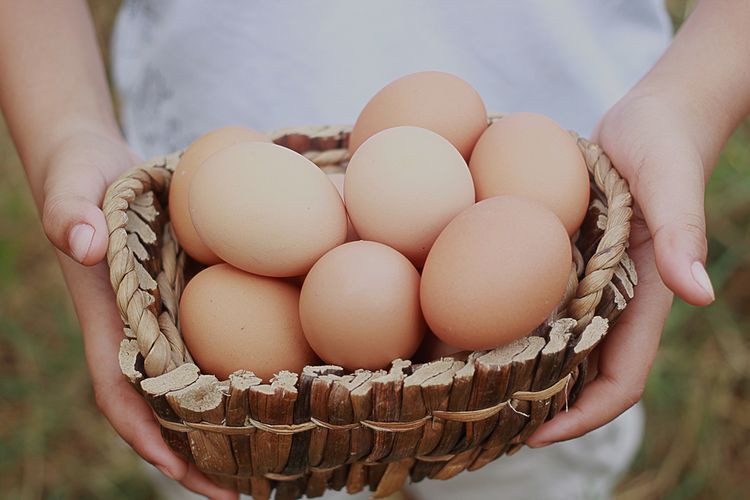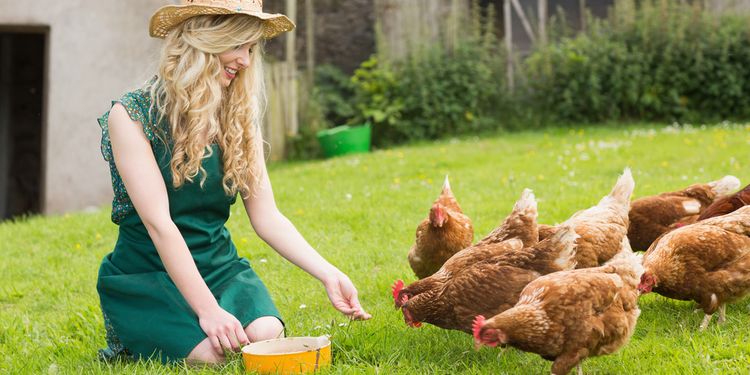Are All Eggs Created Equally?

Eggs are an economical jubilee of protein, healthy fats, vitamin D, zinc and over a dozen other vital nutrients. But like all facets of life, you get what you pay for. If you go low-budget, you’ll get low-benefit. You get the idea.
An egg is a whole food that you don’t want to penny-pinch over. Yes, organic/free-range eggs may cost double or more what factory farmed eggs cost, but they’re still relatively inexpensive and considerably more nutritious. And I’m sure you’d rather spend $1 wisely than $0.50 foolishly, right?
Egg-loving Abel James breaks down why paying more for quality eggs should be a no-brainer.

Factory Chicken Farms
The life of laying hens in a factory farm is pretty horrific. They spend their entire existence in a battery cage, which is slightly smaller than a shoe box and inhibits almost all forms of movement.
This leads to bone and muscle deterioration, as well as frequent deaths from dehydration, which is known as “cage fatigue.”
The average “useful life” of a caged hen is two years, after which they’re yanked from their cages (which breaks most of their bones) if they’re not already dead and rotting under their neighbors. That’s what it takes to get a one dollar carton of eggs.

Happy Hens Produce Better Eggs
Study after study shows that eggs from sick and undernourished caged hens simply don’t compare nutritionally with the eggs from free-range, sun-and-grass-enjoying hens.
A 2007 study from Mother Earth News revealed that eggs from pasture-raised hens, compared to factory farmed hens, contained:
- 7x more Beta Carotene
- 3x more Vitamin E
- 2x more Omega-3 Fatty Acids
- 2/3 more Vitamin A
- 1/4 less Saturated Fat
- 1/3 less Cholesterol
You would have to eat considerably more factory farmed eggs to get the same omega-3, vitamin E and beta carotene benefits that you’d get from a single pasture-raised hen.
Buy Local Eggs
Supporting local businesses builds relationships, boosts the local economy, and reduces your carbon footprint by eliminating the commercial services needed to get that factory-farmed carton of eggs to your closest grocery store.
It’s also a great way to stick it to the big food companies who abuse animals, pollute our air, and destroy farmland.
Better Eggs Taste Better
To spare you from testing out factory-farmed eggs on your own, Abel James did the dirty work for you. Here are his findings:
Eggs from pasture-raised hens:
- Have firmer egg whites
- Contain creamier yolks that are a deep orange color
- Were only laid a few days before being purchased
- Are delicious!
Eggs from factory-farmed hens:
- Have an “off” texture
- Contain paler yolks
- Can be up to 60 days old
While the glutton in all of us cares foremost about the visceral pleasure derived from eating, don’t forget about how the food you eat affects your health, your community, the planet, and the animals being sacrificed for you. Add all of this up, and buying pasture-raised eggs becomes an easy choice.
